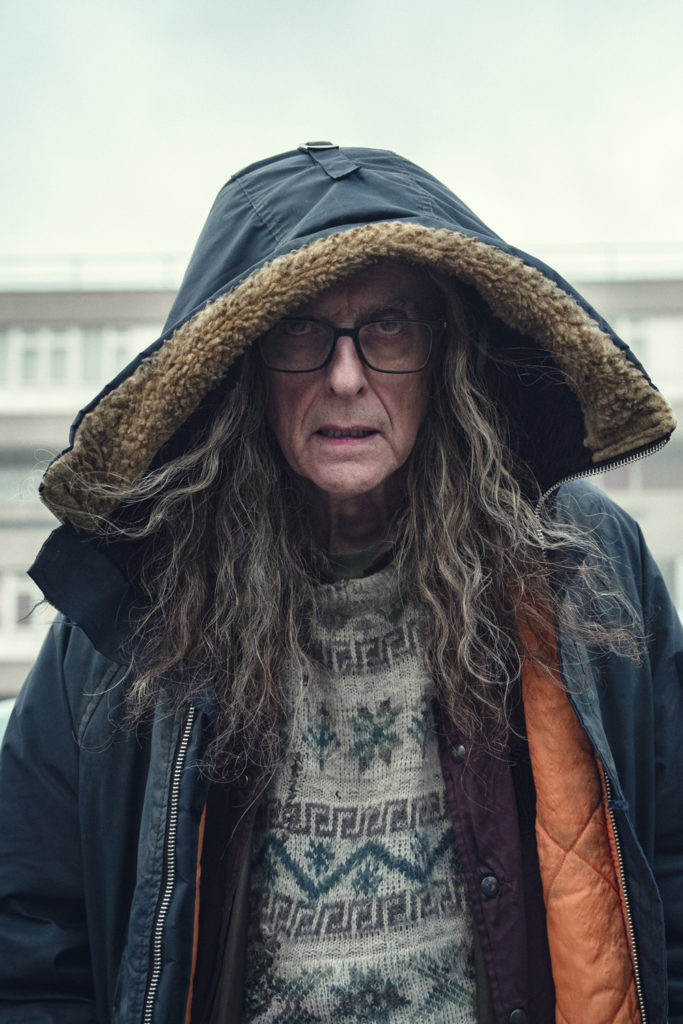10 Poems To Soothe The Soul
By
3 years ago
Allie Esiri chooses 10 poems and asks a host of famous faces to read them, just for Country & Town House...

Poetry has helped Allie Esiri throughout her life, so we asked her to choose 10 of her favourite poems to see us through these uncertain times, brought to life in exquisite audio by some of the UK’s best actors. Make a cup of tea, sit down and let the words wash over you…
A great poem concentrates my mind and enlivens my heart. Poetry invites us to give over our undivided attention and leave this world for those imagined and remembered scenes captured in the lines before us. At a time in which we might find ourselves cast adrift from our loved ones, I find consolation and encouragement in the mind-bendingly brilliant words of the great poets, from the Robert Louis Stevenson poem that I have loved since my childhood to the Emily Dickinson which was pressed on me relatively recently and which I think I now have by heart. All these poems appear in my anthologies, A Poem for Every Night of the Year and A Poem for Every Day of the Year. I couldn’t be more excited to share these readings by ten of our greatest actresses, who breathe life into these poems and have made me hear each and every one anew.
Poetry To Soothe Your Soul
Listen to the poems here, and read along, below.
‘Hope’ is the thing with feathers by Emily Dickinson, read By Ophelia Lovibond
The internet has revitalised the exchange of poetry and this pithy and uplifting poem about hope has been much shared in times of fear.
‘Hope’ is the thing with feathers –
That perches in the soul –
And sings the tune without the words –
And never stops – at all –
And sweetest – in the Gale – is heard –
And sore must be the storm –
That could abash the little Bird
That kept so many warm –
I’ve heard it in the chillest land –
And on the strangest Sea –
Yet – never – in Extremity,
It asked a crumb – of me.
Adlestrop by Edward Thomas, read By Kate Fleetwood
The broadcast journalist John Simpson recently chose this to read on Radio 4’s Today programme as the poem that helped him deal with the trauma of covering the Tiananmen massacre. Written in 1914, it traces a journey taken by Edward Thomas from London to visit his friend and fellow poet Robert Frost near Ledbury on which the steam train he was on made an unscheduled stop at the Gloucestershire hamlet of Adlestrop.
Yes. I remember Adlestrop—
The name, because one afternoon
Of heat the express-train drew up there
Unwontedly. It was late June.
The steam hissed. Someone cleared his throat.
No one left and no one came
On the bare platform. What I saw
Was Adlestrop—only the name
And willows, willow-herb, and grass,
And meadowsweet, and haycocks dry,
No whit less still and lonely fair
Than the high cloudlets in the sky.
And for that minute a blackbird sang
Close by, and round him, mistier,
Farther and farther, all the birds
Of Oxfordshire and Gloucestershire.
From Ulysses, by Alfred, Lord Tennyson, read By Tracy Ann Oberman
Tennyson’s Ulysses yearns to set out on new adventures. The rousing final lines are particularly famous and oft-quoted – Judi Dench, as her character, M, even recited them in the James Bond film, Skyfall.
[…] Come, my friends,
‘T is not too late to seek a newer world.
Push off, and sitting well in order smite
The sounding furrows; for my purpose holds
To sail beyond the sunset, and the baths
Of all the western stars, until I die.
It may be that the gulfs will wash us down:
It may be we shall touch the Happy Isles,
And see the great Achilles, whom we knew.
Tho’ much is taken, much abides; and tho’
We are not now that strength which in old days
Moved earth and heaven, that which we are, we are;
One equal temper of heroic hearts,
Made weak by time and fate, but strong in will
To strive, to seek, to find, and not to yield.
Sonnet VII [O Solitude! if I must with thee dwell] by John Keats, read By Pippa Bennett – Warner
This poem extolls the wonder and joys of the countryside over the town but concludes that what would make the experience all the more complete would be to be able to share nature’s beauty with another.
O Solitude! if I must with thee dwell,
Let it not be among the jumbled heap
Of murky buildings; climb with me the steep,—
Nature’s observatory—whence the dell,
Its flowery slopes, its river’s crystal swell,
May seem a span; let me thy vigils keep
’Mongst boughs pavillion’d, where the deer’s swift leap
Startles the wild bee from the fox-glove bell.
But though I’ll gladly trace these scenes with thee,
Yet the sweet converse of an innocent mind,
Whose words are images of thoughts refin’d,
Is my soul’s pleasure; and it sure must be
Almost the highest bliss of human-kind,
When to thy haunts two kindred spirits flee.
Ode on Solitude by Alexander Pope, read By Hattie Morahan
The great 18th century essayist, satirist and poet Alexander Pope was something of a precocious genius, having written this bittersweet celebration of self-sufficiency and the union of humanity with nature at the extraordinarily tender age of 12.
Happy the man, whose wish and care
A few paternal acres bound,
Content to breathe his native air,
In his own ground.
Whose herds with milk, whose fields with bread,
Whose flocks supply him with attire,
Whose trees in summer yield him shade,
In winter fire.
Blest, who can unconcernedly find
Hours, days, and years slide soft away,
In health of body, peace of mind,
Quiet by day,
Sound sleep by night; study and ease,
Together mixed; sweet recreation;
And innocence, which most does please,
With meditation.
Thus let me live, unseen, unknown;
Thus unlamented let me die;
Steal from the world, and not a stone
Tell where I lie.
Invictus by W.E. Henley, read By Beatie Edney
Nelson Mandela found this poem a great comfort during the twenty-seven years he spent incarcerated. ‘Invictus’ is the Latin word for unconquerable.
Out of the night that covers me,
Black as the pit from pole to pole,
I thank whatever gods may be
For my unconquerable soul.
In the fell clutch of circumstance
I have not winced nor cried aloud.
Under the bludgeonings of chance
My head is bloody, but unbowed.
Beyond this place of wrath and tears
Looms but the Horror of the shade,
And yet the menace of the years
Finds and shall find me unafraid.
It matters not how strait the gate,
How charged with punishments the scroll,
I am the master of my fate,
I am the captain of my soul.
Say not the Struggle Nought Availeth by Arthur Hugh Clough, read By Indira Varma
Through the metaphors of a battlefield, the ocean’s waves, and the rising sun, Clough is saying: don’t give up, keep fighting – better things are on the way.
Say not the struggle nought availeth,
The labour and the wounds are vain,
The enemy faints not, nor faileth,
And as things have been they remain.
If hopes were dupes, fears may be liars;
It may be, in yon smoke concealed,
Your comrades chase e’en now the fliers,
And, but for you, possess the field.
For while the tired waves, vainly breaking
Seem here no painful inch to gain,
Far back through creeks and inlets making,
Comes silent, flooding in, the main.
And not by eastern windows only,
When daylight comes, comes in the light,
In front the sun climbs slow, how slowly,
But westward, look, the land is bright.
The Lake Isle of Innisfree by W.B. Yeats, read by Mariella Frostrup
Yeats claimed that the inspiration for ‘The Lake Isle of Innisfree’ came when he was walking down London’s Fleet Street in 1888 and was struck suddenly by a memory of his childhood. As a city boy he loved and longed for his summers in the countryside, especially the little island of Innisfree on Lough Gill — a lake in Ireland’s County Sligo.
I will arise and go now, and go to Innisfree,
And a small cabin build there, of clay and wattles made;
Nine bean-rows will I have there, a hive for the honey-bee,
And live alone in the bee-loud glade.
And I shall have some peace there, for peace comes dropping slow,
Dropping from the veils of the morning to where the cricket sings;
There midnight’s all a glimmer, and noon a purple glow,
And evening full of the linnet’s wings.
I will arise and go now, for always night and day
I hear lake water lapping with low sounds by the shore;
While I stand on the roadway, or on the pavements grey,
I hear it in the deep heart’s core.
Sonnet 98 by William Shakespeare, read By Samantha Spiro
In one of his most celebrated and perhaps most accessible sonnets, Shakespeare sings the praises of the month of April, but concedes he cannot appreciate it fully while he is separated from his beloved.
From you have I been absent in the spring,
When proud-pied April, dressed in all his trim,
Hath put a spirit of youth in everything,
That heavy Saturn laughed and leaped with him.
Yet nor the lays of birds, nor the sweet smell
Of different flowers in odour and in hue,
Could make me any summer’s story tell,
Or from their proud lap pluck them where they grew:
Nor did I wonder at the lily’s white,
Nor praise the deep vermilion in the rose;
They were but sweet, but figures of delight
Drawn after you, – you pattern of all those.
Yet seem’d it winter still, and, you away,
As with your shadow I with these did play.
The Land of Counterpane by Robert Louis Stevenson, read By Gina Bellman
This might be a poem to share with children during this lockdown period. The author of Treasure Island, Stevenson was also a great writer of children’s verse. He had spent much of his own childhood stuck indoors due to a weak chest and here describes the adventures he had using his imagination.
When I was sick and lay a-bed,
I had two pillows at my head,
And all my toys beside me lay,
To keep me happy all the day.
And sometimes for an hour or so
I watched my leaden soldiers go,
With different uniforms and drills,
Among the bed-clothes, through the hills;
And sometimes sent my ships in fleets
All up and down among the sheets;
Or brought my trees and houses out,
And planted cities all about.
I was the giant great and still
That sits upon the pillow-hill,
And sees before him, dale and plain,
The pleasant land of counterpane.
Allie Esiri is the editor of A Poem for Every Day of the Year, A Poem for Every Night of the Year and Shakespeare for Every Day of the Year (all Macmillan, £18.99)

Allie Esiri, described in a Tatler profile as ‘a poetry powerhouse’, is a writer, anthologist and curator of live poetry events. Her latest book, Shakespeare for Every Day of the Year (Macmillan, 2019) is published in hardback, e book and audiobook. A Poem for Every Day of the Year (Macmillan, 2017) and A Poem for Every Night of the Year (Macmillan, 2016, winner IBW book award) were best books of the year in The Times, The New Statesman and The Observer. Readers on the audiobooks include Helena Bonham Carter, Damian Lewis, Helen McCrory and Simon Russell Beale. Credited with bringing poetry into the digital age, Allie’s bestselling interactive poetry app The Love Book is recommended by Apple as an Apple Editors’ Choice All Time Favourite App. Allie’s live poetry shows take place at major literary festivals and yearly at the National Theatre.
Here’s the full poetry playlist:
Meet The Readers
Listen Next: House Guest Podcast | Lockdown Culture Podcast













